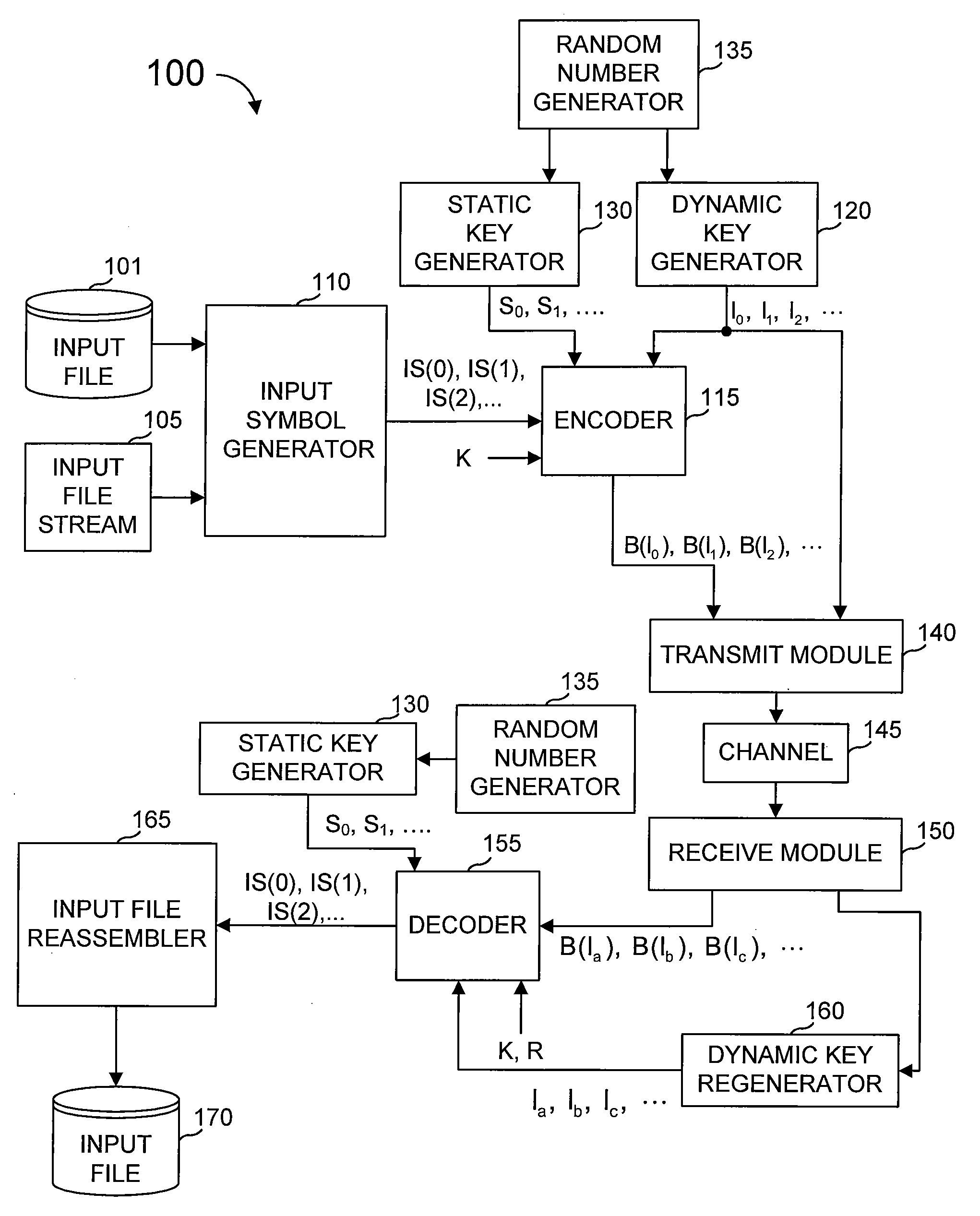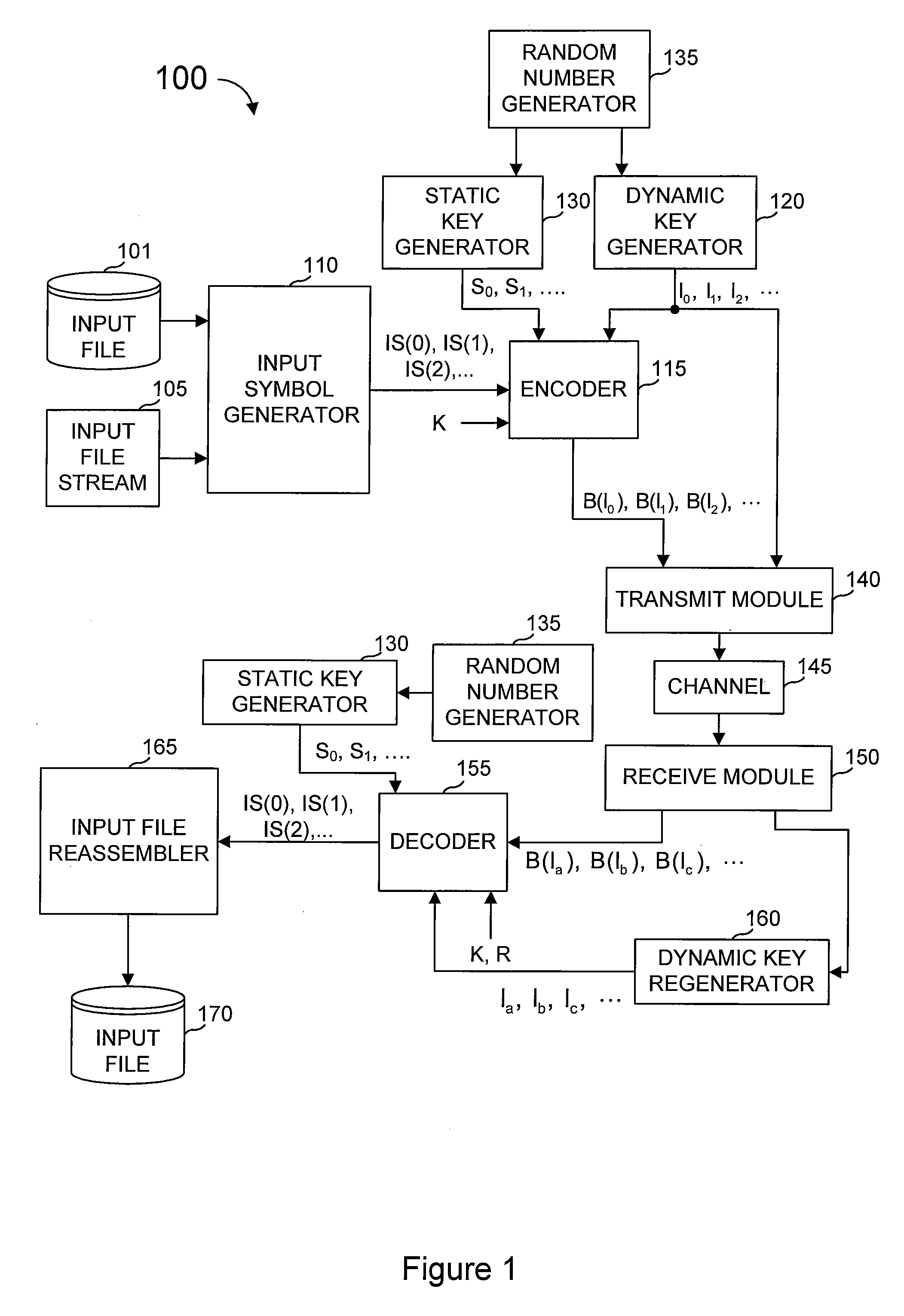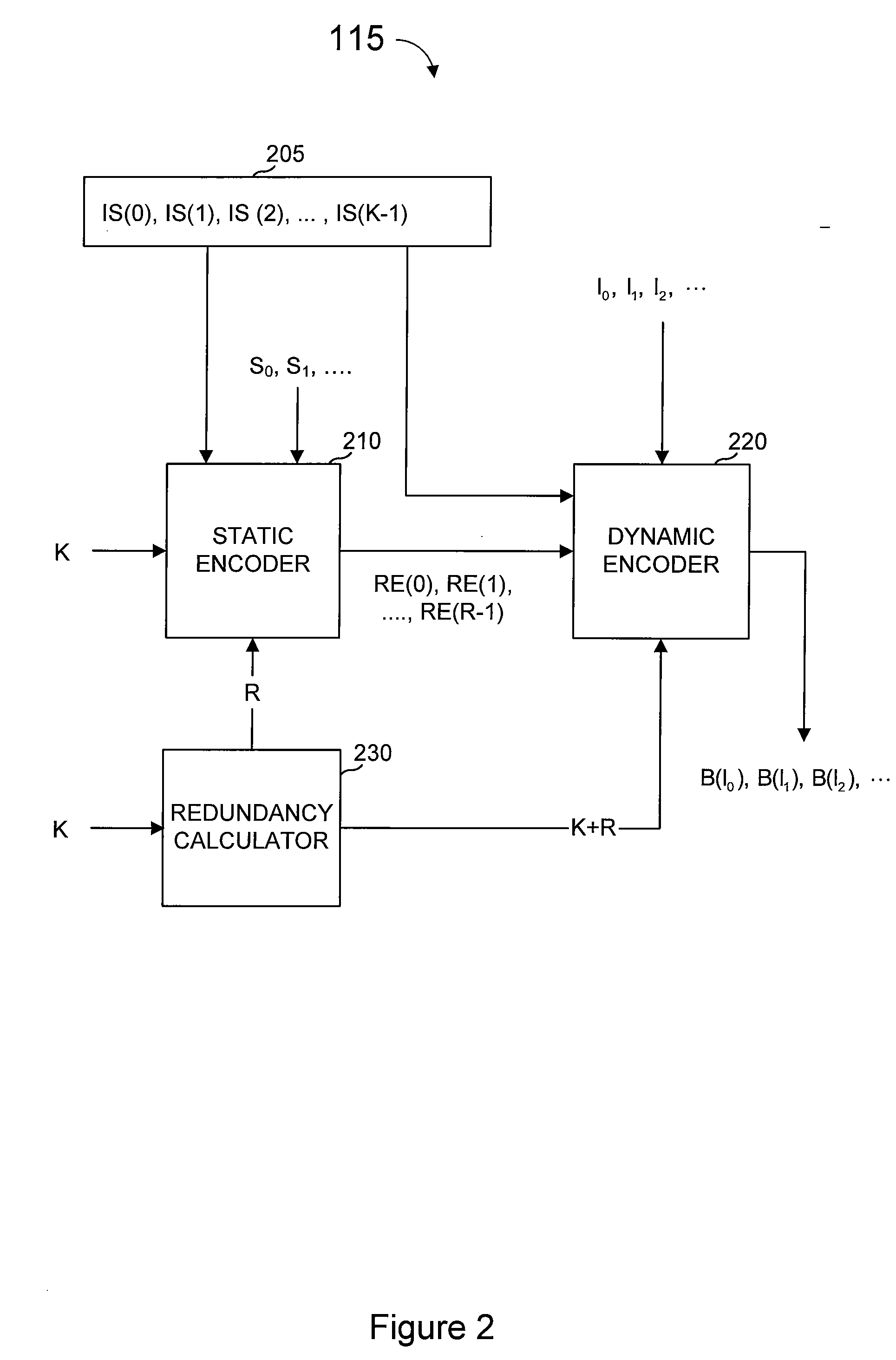Multiple-field based code generator and decoder for communications systems
- Summary
- Abstract
- Description
- Claims
- Application Information
AI Technical Summary
Benefits of technology
Problems solved by technology
Method used
Image
Examples
Embodiment Construction
[0067]The inventions described herein make use of mathematical operations for encoding and decoding based on operations in one or more finite fields. Finite fields are finite algebraic structures for which the four arithmetic operations are defined, and which form a field with respect to these operations. Their theory and their construction are well understood by those of skill in the art.
[0068]In the description that follows we shall require a multiplication process to be defined between the elements of a finite field and symbols which represent or are derived from the data to be encoded or decoded. Three distinct types of symbols are considered in this description: input symbols comprise information known to the sender which is to be communicated to the receiver, redundant symbols comprise symbols which are derived from the input symbols and output symbols comprise symbols which are transmitted by the sender to the receiver. Of the many possibilities for defining such a multiplica...
PUM
 Login to View More
Login to View More Abstract
Description
Claims
Application Information
 Login to View More
Login to View More - R&D
- Intellectual Property
- Life Sciences
- Materials
- Tech Scout
- Unparalleled Data Quality
- Higher Quality Content
- 60% Fewer Hallucinations
Browse by: Latest US Patents, China's latest patents, Technical Efficacy Thesaurus, Application Domain, Technology Topic, Popular Technical Reports.
© 2025 PatSnap. All rights reserved.Legal|Privacy policy|Modern Slavery Act Transparency Statement|Sitemap|About US| Contact US: help@patsnap.com



